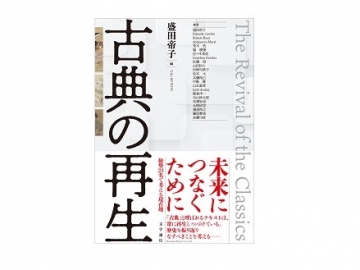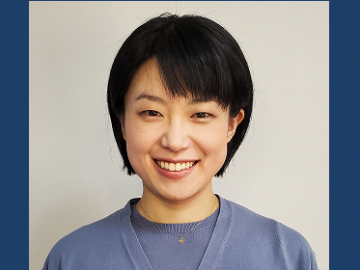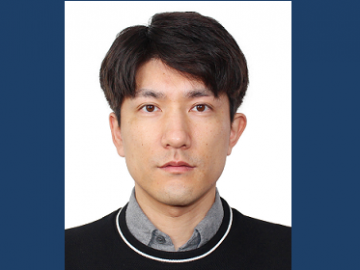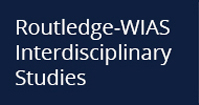
KIM, Younglong, Assistant Professor
Japanese Modern and Contemporary Literature Seen Afresh: Relationship with the Legal System
Interest in Japanese literature even before coming to Japan to study
In my research I am re-examining modern and contemporary Japanese literature vis-à-vis its relationship with the legal system. In recent years, I have been collecting and analyzing literary works that include some reference to war crimes trials. Here “war crimes trial ” refers to the series of trials, that took place after World War II, of Japanese for war crimes (under international law), including the Tokyo Trial (International Military Tribunal for the Far East), which tried Japanese leaders as class A war criminals, and B- and C-class trials held around the world to try soldiers in the Imperial Army of Japan for the abuse of prisoners of war and local people.
I like Japanese postwar literature, especially the works of Osamu Dazai. Before I came to Japan to study, I read him a lot in Korea. However, when I read Dazai’s No Longer Human (Ningen Shikkaku) , I found many expressions that I couldn’t understand. As I read through the books, checking the meaning of expressions one by one, I noticed something: when writing a work, novelists tend to use words that were in popular use in newspapers and the news at that time. No Longer Human , which was written in 1948 after Japan’s defeat in WWII, included many expressions related to the Tokyo Trial, expressions that people at that time could understand, but I could not. After that, I began to read Japanese modern and contemporary literature with the question in mind, “In what context was this expression used when this work was written?”—which led me to my current research.
The meaning of literary works about a war crimes trials
I think that literary writing about a war trial is “re-trial with literature.” What does this mean? I would like to explain this through the example of Between God and Man, written by Junji Kinoshita, a notable playwright. This is a rare work that covers both the Tokyo Trial and B- and C-class trials. It consists of two parts: Judgment (Shimpan) which includes a brief record of the Tokyo Trials; and Summer: A Romance of the South Seas (Natsu: Nampo no romansu) which depicts B- and C-class trials. Surprisingly, this work was written in 1970, more than 20 years after the war. Why was it written at that time?
The year 1970 was in the middle of the Vietnam War. The news in Japan then was dominated by reporting about the Vietnam War, and every time people heard news of “atrocities against the Vietnamese by U.S. forces,” they were reminded of “atrocities against Asia by Japanese troops in World War II.” Gradually, movements were initiated to review the international law that was the basis of the Tokyo Trial, and discussions were opened asking the significance of the Tokyo Trial itself. In that scenario, people who read Kinoshita’s Between God and Man took the Tokyo Trial mentioned in the work as a broaching of the question, “What is the United States doing to Vietnam now in 1970?” rather than as a discussion of the trial from the past.
This work was also produced as a stage play in 2018—the time when the Abe administration was enthusiastically working to amend Japan’s constitution. Some who saw that stage performance took the portrayal of the Tokyo Trial as arguing that amending Article 9 of the Constitution might lead to the expansion of Japanese military power and hence as a reconsideration of the war that triggered the framing of the Constitution in the first place.
I suggest that such reconsideration of a work involving war crimes trials vis-à-vis a current political situation is “re-trial with literature.”
Current research
In order to reconsider the relationship between literature and the Constitution of Japan and international law that became the foundation of postwar Japan, I am working to collect and list more works of modern and contemporary Japanese literature that deal with war crimes trials.
In the current list is Seicho Matsumoto’s The Court Built on Sand: A Novel of the Tokyo Trial. Written in 1970, the same year as Kinoshita’s work discussed above, The Court Built on Sand features Shumei Okawa, detained in Sugamo Prison as a Class A war criminal but not charged due to mental instability. Thanks to the expressive imagination unique to Seicho Matsumoto, a trial that was not actually held is being relived through the novel. In fact, if we compare The Court Built on Sand with Between God and Man, we can deepen our insight into the Vietnam War and the reason why the international law was reviewed during that period. In that sense, there are issues that can be seen clearly by reading and comparing the works in the list. On the other hand, even with a novel alone, I think it is possible to understand the law and the historical position of the trials by investigating when and where certain genres were written.
It should be noted that the term “war crimes trials ” brings to mind Japanese war criminals, but there were also war criminals in Taiwan and Korea (both former Japanese colonies) and they were brought to trial. There are some works about war crimes trials written by Korean writers who live in Japan, so I would like to acquire them for study as well.
Interview and composition: Keiko Aimono
In cooperation with: Waseda University Graduate School of Political Science J-School










